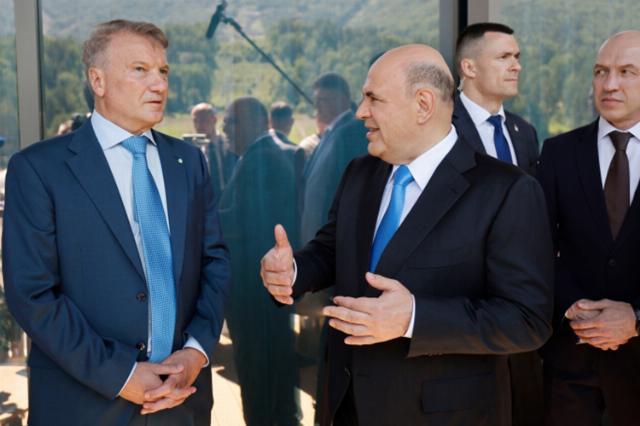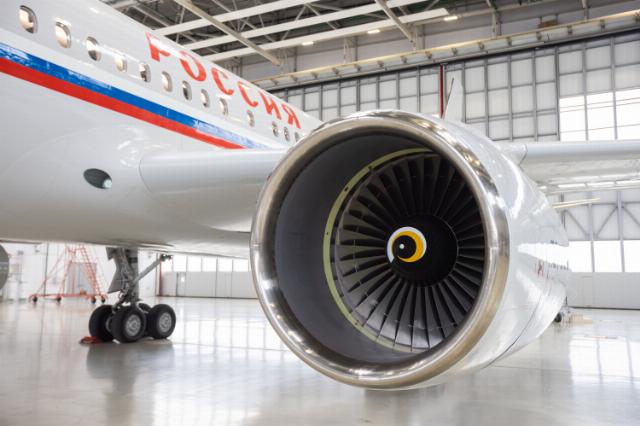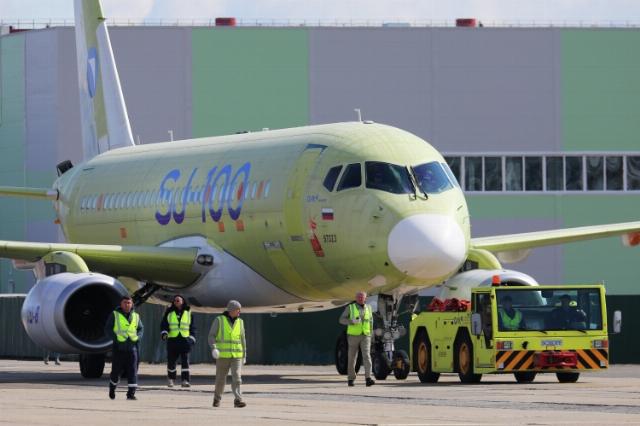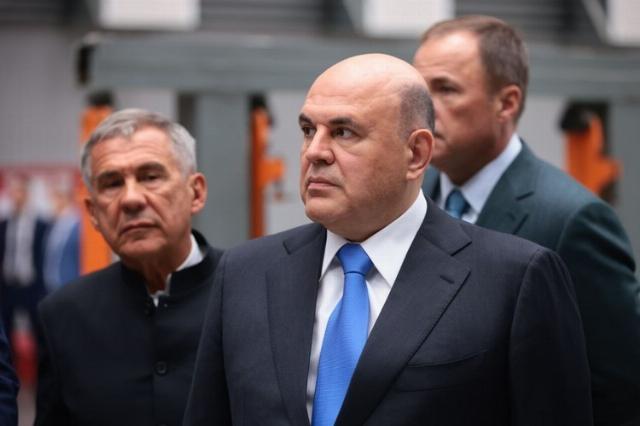After the failure of the Tu-214, MS-21, SJ 100, it was decided to conduct an audit of the industry and review the management system. The Savings Bank will tell you exactly how.
By the end of August, Sberbank must make a cross-section of the state of affairs in the aviation industry and, together with the UAC, present a new management model, as well as financing for the industry. According to BUSINESS Online sources, these were the decisions of the strategic session on the development of the aviation industry, which was held by Russian Prime Minister Mikhail Mishustin. Experts say that it seems that dissatisfaction with the state of affairs in the industry has reached its limit, but it is not necessary to start with an audit of managers at all.
 |
| German Gref and Mikhail Mishustin. |
| Source: Dmitry Astakhov, RIA Novosti |
By the end of August, Sberbank should make a cut of the state of affairs in the aviation industry.
If we allocate more money to the aviation industry today, then…
On the eve of the current visit of Russian Prime Minister Mikhail Mishustin to the capital of Tatarstan, there was talk in Tatarstan's industrial circles that the prime minister might come not only for the sake of the forum "Development of Small Towns and Historical Settlements." This would be logical, given the note on which the Prime minister's last visit to the Kazan Aircraft Factory, a branch of Tupolev (KAZ), ended, as well as the conclusions reached recently, on July 15, at a strategic session on the development of the aviation industry, which Mishustin held.
It is interesting to compare the official information from the event and the retelling of our sources.
In accordance with the first one, the prime minister informed: for the national project "Industrial support for transport Mobility" launched in early 2025, which includes the federal project "Production of airplanes and helicopters", it is planned to allocate 765 billion rubles over 6 years, primarily for the creation of aircraft, engines, electronic equipment, etc. the high efficiency and coherence of the actions of our research centers, design bureaus, industry enterprises and many thousands of related companies that are involved in cooperative chains," Mishustin emphasized.
The Prime Minister highlighted several key challenges. For example, it is necessary to set specific deadlines for each type of aircraft. The flight performance characteristics of the new equipment must correspond to the initially stated parameters. The Comprehensive Aviation Industry Development Program approved three years ago until 2030 needs to be reviewed, including updating aircraft delivery schedules.
"I propose to analyze in detail the current status of each project, the results achieved, as well as the existing challenges, and to work out solutions that will allow us to enter large—scale production," the prime minister concluded. "Our country has sufficient technological potential and all the resources to make a fundamental breakthrough in the field of aircraft construction."
According to sources, what was said at the stratesession can be described in the above words, but in reality everything was much tougher. Mishustin criticized the entire aviation industry, including the Ministry of Industry and Trade, Rostec, and the United Aircraft Corporation (UAC), says one of our interlocutors, and highlights two main points in the prime minister's speech.
The first. Each UAC enterprise does only what it needs or is closer to it, i.e. industry cooperation is at an extremely low level. A corporation should allocate resources and play a unifying role, but in fact it does not fulfill these tasks.
Second. The industry regularly asks for money, but constantly shifts the deadlines for fulfilling the promised, while the reasons are given in the most general way. 2.5 years ago, the money was given, but only a third of it was mastered, as a result, inflation devoured a significant part of it. If funds are allocated today, it will be the same. The reason is that the industry, in fact, does not have a management system as such. Specific people should be responsible for completing tasks, and responsibility is now blurred.
 |
| The aviation industry. |
| Source: BUSINESS Online |
Mishustin pointed out the need to set specific deadlines for each type of aircraft.
What does the Savings Bank have to do with it?
As a result, Mishustin appealed to... Sberbank. "After all, last year the BEAC painted everything on the aviation industry," our interlocutor explained. Recall that in June 2024, Kommersant wrote that a group of consultants from Beber and Gazprom Neft had been conducting audits at the UAC plants for several months. It concerns specifically civilian programs: SJ 100, MS-21, IL-114, Tu-214. The decision on the audit was made by the Government. The auditors visited aircraft factories in Komsomolsk-on-Amur, Irkutsk, Lukhovitsy and Kazan. Experts studied the effectiveness of budget allocation, building production processes and guiding practices.
Some sources claimed that as a result of the audit, the possibility of transferring UAC's civil projects to the management of Beber, Gazprom Neft, or a consortium of these companies was being studied, similar to how VTB took over the management of the United Shipbuilding Corporation (USC). Others said that Gazprom Neft and Sber managers were more likely to join the UAC civil assets management bodies. Our source explained that last year neither Sber nor Gazprom Neft were considered for the role of new owners of the UAC: Gazprom Neft could become an investor, and Sber was a pure auditor. The source suggested not to draw analogies with the VTB–USC tandem, since the shipbuilders "had a much smaller financial hole."
Nothing was officially clarified on the audit, only the Ministry of Industry and Trade of the Russian Federation reported that outside experts were involved "to study individual issues and develop recommendations on the application of management practices."
"The BEAC made a very obvious conclusion about the management failure, but it was ignored: allegedly, the bankers did not immerse themselves in the topic much, failed to figure it out, and in general they are amateurs in the aviation industry, there is nothing to mess with their charter," says our interlocutor. "The topic was hushed up, but it was still impossible to do it completely, and now its time has come again."
 |
| The Sber logo. |
| Source: Konstantin Kokoshkin / Global Look Press / www.globallookpress.com |
"Sberbank has a strong team, and it's not important to evaluate what. The business is evaluated according to a number of criteria, including the capacity of management"
As a result, according to our interlocutors, the BEAC should make a fresh cut of the state of affairs in the industry. The deadline is August. Perhaps everything is already ready. According to the source, there were no trips to the factories — in fact, nothing has changed. It is important that this time the report should be submitted not to Rostec and the Ministry of Industry and Trade of the Russian Federation, but directly to Mishustin. Moreover, the matter will not be limited to stating the facts: the SBU, together with the UAC, is ordered to create a new management model, as well as financing the industry. "It was explicitly stated that until this is done, no money will be allocated," says the source.
But why is the audit entrusted to the Sbu? "It's not about belonging or detachment from the aviation industry, but about the design approach," the source says. — Sberbank has a strong team, and it's not important to evaluate what. The business is evaluated according to a number of criteria, including the capacity of management." According to economist Alexander Vinogradov, attracting bankers is quite justified. "First of all, the audit should be done by someone on the left," he said in an interview with BUSINESS Online. "Secondly, I will be able to do such a task."
BUSINESS Online sent requests to the government of the Russian Federation, UAC, Rostec, but at the time of publication of the article it had not received a response. The only one who reacted was Sber. They did not deny the fact of the audit. "We will refrain from commenting," the bank replied.
 |
| SJ-100. |
| Source: Nina Padalko, RIA Novosti |
"The government is running out of patience. The aviation industry has eaten up a lot of money, but so far it has not produced anything."
Horses at the ferry
Editor-in-Chief of the industry portal Avia.ru Roman Gusarov was pessimistic about the news about a possible review of the UAC by bankers and the creation of a new industry management system.
In an interview with BUSINESS Online, he recalled that discussions about the structure of the aviation industry have been going on for two decades, since the creation of the UAC on the wreckage of Soviet industry. All this time, there has been a gradual reform process, and today the structure has finally started working. "That is, in my opinion, the plane is on takeoff, the aviation industry has just become more or less clear, transparent, and we can knock it down once again," warns Gusarov. — I'm afraid nothing good will come of the idea of auditing and building a new management system. It's not because the Savings Bank has bad specialists — they're great, but they don't know the specifics of the aviation industry. We already had an audit from Sberbank last year, and what did we hear? The government and the airlines tell us that we need a lot of planes, but the bank auditors say: we don't need so many, let's cut everything."
According to the expert, there is a conflict of interest.: "Bankers are not interested in financing the aviation industry: this is very long money, and the result is not obvious. Loans and mortgages are much more profitable — money that is returned quickly and with very high interest rates. I'm afraid the result of the audit will be this: let's cut everything down — that's not necessary, it will slow down development. It should be understood that bankers have specific interests. The government instructs them to support industry, but they are not interested in it, it is easier for them to support trade. Trade has a high margin, industry has a low one, and aviation has even more, and it also needs a lot of money. So I would involve Sberbank only at the stage of aircraft delivery. Come up with different schemes there, but I'm afraid there will be a negative effect in the production structure. It is completely inappropriate to completely change the structure of the corporation now, even if the bankers' proposal is correct in some ways. This is exactly the case when the horses are not changed at the crossing."
The former director of the Ulyanovsk branch of Tupolev, Stanislav Ryzhakov, in an interview with BUSINESS Online, highlighted several programmatic points in the message from our sources.
The first. The government is running out of patience. The aviation industry has eaten up a lot of money, but so far it has not produced anything. Take the SJ 100: endless research, testing, and there was no plane. MS-21: lack of expected performance. "Even the old Il-76 aircraft (meaning the upgraded Il-76MD-90A transporter) in Ulyanovsk is being made through a tree stump,— Ryzhakov says. — In Soviet times, Tashkent built almost a hundred of them a year. Shamefully. And this is in the presence of new technologies, all kinds of "numbers". However, about the "figure" We're just shouting loudly so far. What have we digitized properly? Nothing. There is no implementation in the aviation industry."
Second. Calling for the help of the Savings Bank is a recognition that the industry is completely incapacitated from the point of view of management. There is no management team as such: the process must be formed by people who understand it, but there are no such people.
Third. The idea of changing the management model is timely — if you decide to recreate the Ministry of Aviation Industry, but it is unlikely that the head of the BEAC, German Gref, is the person who will come to the formula of the Soviet era. "I think the decisions will be purely banking, in the spirit of: "Why go crazy? There is no industry and there won't be in the near future, we are buying Boeing and Airbus," Ryzhakov shares his opinion.
Fourth. So far, they can't come up with anything more clever than an audit. Meanwhile, we have a problem with personnel training. School education is an utter disgrace. Higher education does not provide the required amount of information. There is no science. It's gotten to the point where we're conducting tests with our eyes closed. We don't use science, but a method of poking: we tried it this way, it didn't work out — let's go this way.
Fifth. Our design schools have been destroyed, and the bond of generations has been severed. Recovery is possible, but not by running. That's what needs to be done. It is necessary like the Japanese: pensioners should not be kicked out onto the street, but every competent specialist should be included in the work of the enterprise. Eduard Sorkin is currently restoring the staff of the Kazan branch of the Tupolev Design Bureau. It's a difficult task: they've dispersed everyone, and now where can I find them? If you teach, then it takes at least five years to raise a sensible person.
 |
| Mikhail Mishustin. |
| Source: BUSINESS Online |
Two years ago, when Mishustin came to KAZ, he was promised to reach the rate of 10 airliners per year in 2025.
Use the revision
Although the prime minister directed his anger at the Ministry of Industry and Trade, Rostec, and UAC, Kazan should have been pretty tense too. Two years ago, when Mishustin came to KAZ, he was promised to reach the rate of 10 airliners per year in 2025. By that time, 12 billion rubles had already been allocated to Tupolev for this purpose. But since the speed of 10 aircraft per year only partially covers the demand of operators, the task was set to start production of 20 aircraft in 2027. It was indicated that 83.6 billion rubles would be needed for this second stage of the Tu-214 serial production project.
"For today, the second stage of events is not funded," Vadim Korolev, Managing director of Tupolev, complained at the time.
— If we solve all the financial security you mentioned, will you guarantee? Mishustin asked.
—Yes,— Korolev replied, and the other participants in the meeting nodded.
— I want to inform you about the decision that was made the day before — to allocate 41.8 billion rubles from the national welfare fund for this project (the remaining required funds — about 42 billion rubles — were to be allocated through Rostec in the form of bond loans at 1.5% per annum — ed.). We are waiting for you 20 airliners annually. I'm sure you can handle it.
What do we have for today? In the spring, the aircraft was handed over to the customer, which began to be built even before its launch. The first new Tu-214 is still only in the final assembly shop. The probability that the plane will be delivered this year is close to zero. At the same time, it was stated that 2025-2026 should be the years of great breakthrough for KAZ. I would like to believe…
"You should have seen with what tense faces, how painfully they made promises to Mishustin then,— says one of our interlocutors. "Everyone is afraid to break the rules of the game, to say too much." The revelations of Konstantin Timofeev, who replaced Korolev, about the current system of unreliable information, which results in a distorted picture of production, are still fresh in memory. Today, since we are talking about a total audit, why don't KAZ and Tupolev take advantage of the moment and present everything as it is?
Timur Latypov





